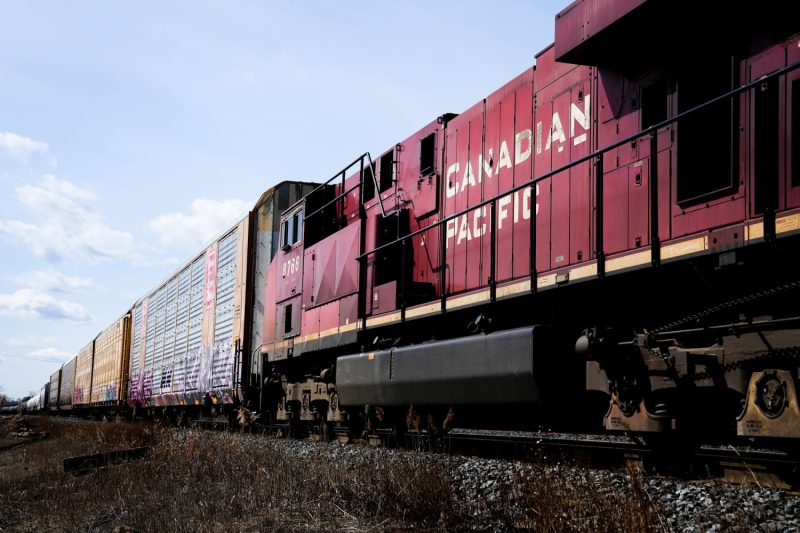The recent news of a possible work stoppage at Canada’s two largest railroads has raised concerns over potential disruptions to the U.S. supply chain, particularly in industries that rely heavily on rail transportation for the movement of goods. The impacts of such a situation could be far-reaching and could affect various sectors including agriculture, manufacturing, retail, and more.
One of the primary concerns surrounding a work stoppage at the Canadian railroads is the impact it could have on the transportation of agricultural products. Canada is a major exporter of agricultural goods to the United States, including wheat, barley, canola, and other commodities. Any disruption in rail service could lead to delays in the delivery of these products, causing shortages and price increases in the U.S. market. This could have a domino effect on the entire agricultural industry and could harm farmers, distributors, and consumers alike.
The manufacturing sector is also at risk of being negatively impacted by a work stoppage at the Canadian railroads. Many manufacturers rely on rail transportation to receive raw materials and ship finished goods to customers. Any delays in the movement of these materials could disrupt production schedules, leading to decreased output, increased costs, and potential loss of revenue. Manufacturers may be forced to seek alternative transportation methods, which could be more expensive and less efficient, further straining their bottom line.
The retail industry could also feel the effects of a work stoppage at Canada’s largest railroads. Retailers depend on a steady and reliable flow of goods to stock their shelves and fulfill customer orders. Any disruptions in rail service could lead to inventory shortages, delayed deliveries, and potentially lost sales. Retailers may have to resort to air freight or other costly transportation options to mitigate the impacts of the rail stoppage, ultimately passing those additional costs on to consumers.
In addition to these sectors, other industries such as energy, automotive, and construction could also be impacted by a work stoppage at the Canadian railroads. The movement of materials, parts, and equipment is crucial for these industries to operate efficiently and meet customer demand. Any disruptions in rail service could lead to project delays, increased costs, and overall instability in the supply chain.
In conclusion, a potential work stoppage at Canada’s two largest railroads could have significant implications for the U.S. supply chain across various industries. It is crucial for stakeholders to closely monitor the situation and prepare contingency plans to mitigate the impacts of any disruptions. Collaborative efforts between government agencies, businesses, and transportation companies will be essential in addressing the challenges that may arise and ensuring the continued flow of goods and services in the event of a rail stoppage.

